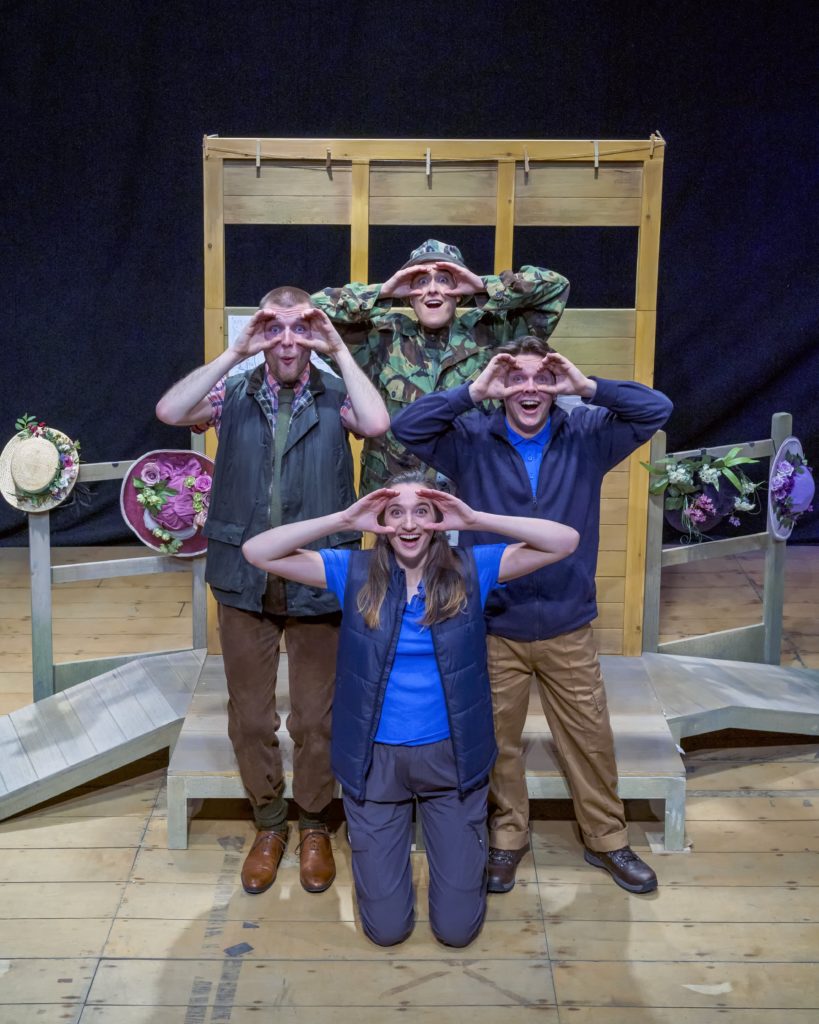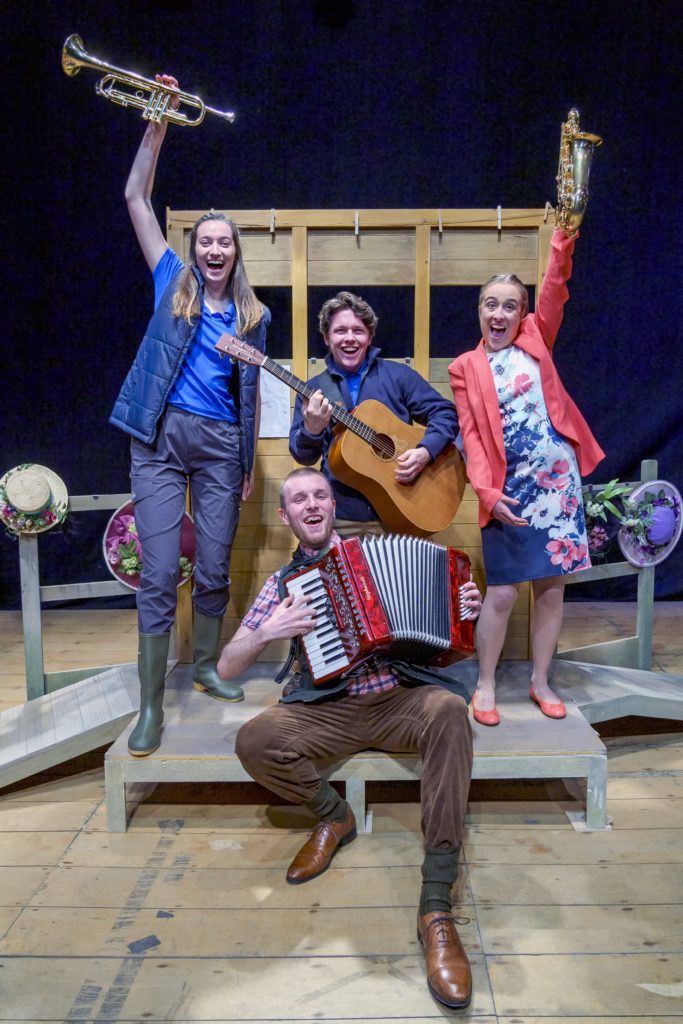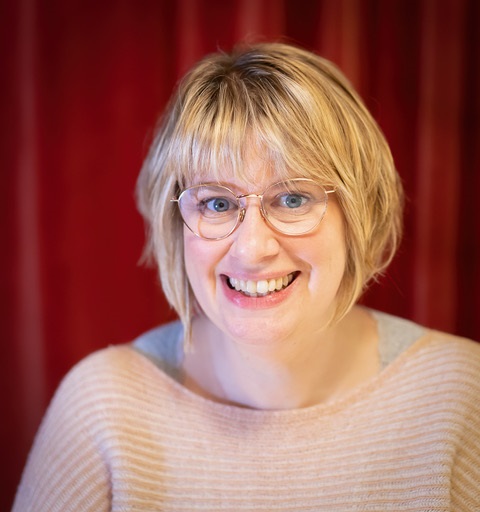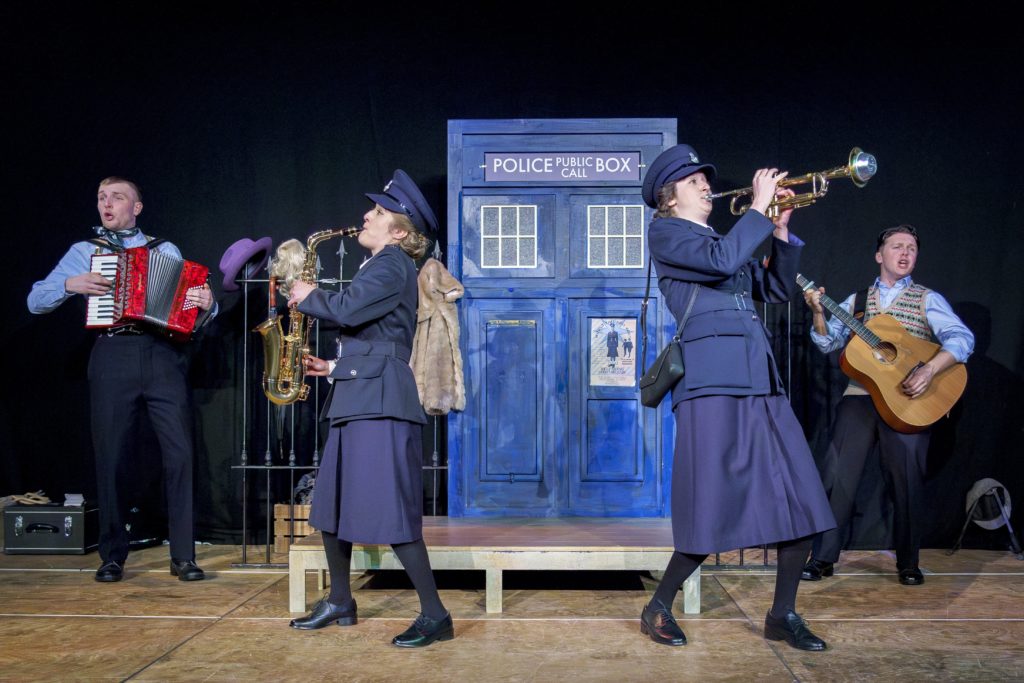
POPPY Hollman is on song in her second commission for Mikron Theatre Company.
After A Dog’s Tale in 2021, the Marsden company is undertaking a nationwide tour of Twitchers, her new play about birds, birders and the work and history of the RSPB, the Royal Society for the Protection of Birds.
As part of Mikron’s 51st season, Twitchers will be on its travels by land and water from April 7 to October 21, visiting York on Sunday afternnon in the company’s regular May slot at Scarcroft Allotments, a suitably outdoor setting for a play rich with bird song.
“It’s like an itch I can’t stop scratching: writing about animals,” says Poppy. “First dogs, now birds [Mikron had already done a play about bees and beekeeping, Deborah McAndrew’s Beyond The Veil in 2013].”
In Poppy’s story, performed by debutant Mikron actor-musicians Eddie Ahrens, Hannah Baker, Harvey Badger and Rachel Hammond, Springwatch is coming to the RSPB Shrikewing nature reserve (“notionally in Yorkshire, but completely fictional,” says Poppy).
From raucous rooks to booming bitterns, the birds of Shrikewing are its stars, but can Jess take inspiration from the RSPB’s tenacious female founders and draw on its history of campaigning to save them? What’s more, can she find her own voice to raise a rallying cry for nature?
“Twitchers is about the RSPB, Europe’s largest conservation charity, and their struggles to protect birds and wildlife since 1889,” says Poppy. “The play offers a fun swoop into the colourful world of birds and birdwatching. Our feathered friends are the real stars of the show; you’ll see them flirting, bickering and making their own indelible impression on the plot.”
Twitchers is nevertheless “driven by the human story”. “It’s a modern-day account of what the RSPB is coming up against in its work. Set on a bird reserve, it gives the human side of the story through telling the history of the RSPB – in the way you can do that in two 45-minute halves in a Mikron show.
“The RSPB was started in 1889 by four indomitable women, before women had the vote and pre-dating other wildlife organisations too. They were seeking to stop the trade in feathers and exotic plumes, mainly for hats,” says Poppy.
“That trade was worth the equivalent of £200 million today, so it was incredibly valuable, and at the time women were not only wearing feathers but dead birds too, and they did so well into the 20th century.
“But in the 1920s, a ban on the import of feathers was finally secured. Gradually the campaigners had made that trade seem so unsanitary and so cruel.”
The dilemma, the dichotomy, that we face more than ever in our age of climate change is how humanity can destroy yet have the potential to save nature. “One RSPB worker in the play says, ‘it would be best of we just closed down and left nature to itself’, but actually that would not be a good idea,” says Poppy.
The RSPB’s membership of one million and volunteer workforce of 12,000 would testify to the importance of their shared concern. “The area covered by RSPB reserves is four times the size of the Isle of Wight, so they need that membership and the volunteers in order to do such vital work, with events like the Big Garden Birdwatch, held every January, when we gain an accurate count of our native birds,” says Poppy.
“The Operation Osprey campaign launched in 1959 was a very important turning point for the RSPB, when these birds were endangered because of egg collectors. By raising awareness of the osprey’s plight, they made it harder for the [egg-collecting] crime to happen.”
Mikron’s multi-talented cast will play the birds in Poppy’s play. “Two of the main characters are a pair of rooks, Barry and Freda, who take on the role of the Greek chorus, commenting on what’s going on at Shrikewing,” she says.
“They see the challenges that are going on in trying to run a reserve and all the problems that go with that. Like the pollution incident, where yet again humans have done something that threatens life there.”

Poppy’s own love, appreciation and awareness of birds dates back to her childhood. “I grew up in a village in north Buckinghamshire, and I now live only 20 miles away from there in Bedfordshire,” she says.
“I’ve noticed how we no longer see the birds I saw as a child: the chaffinches and the starlings. I’ve definitely developed more of a relationship with birds in my garden, buying feeders.
“A lot of young birders now do low-carbon birding, travelling by bicycle, or focusing on the patch around them, avoiding creating massive emissions by not travelling great distances to go birdwatching. They’re a very inspiring generation, really helping nature.”
Such positivity is extended to the play’s finale. “I wanted to end it on a high, even though optimism is quite hard with what we’re doing to our planet right now, but the people who work at the RSPB reserves are so passionate and optimistic about what they do,” says Poppy.
“I’ve tried to not make it too polemical. Someone described it as ‘quietly polemical’ and I agree with that.”
Mikron Theatre Company in Twitchers, Scarcroft Allotments, Scarcroft Road, York, Sunday (21/5/2023), 2pm. No reserved seating or tickets are required, and instead a ‘pay what you feel’ collection will be taken after the show.
Twitchers is on tour nationally by canal, river and road until October 21, in tandem with Mikron’s premiere of Amanda Whittington’s A Force To Be Reckoned With. Full tour details at www.mikron.org.uk.

Poppy Hollman: the back story
TWITCHERS is Poppy’s second play for Mikron Theatre Company.
Her first, 2021’s A Dog’s Tale, was commissioned after she took part in the Mikron New Writer’s Scheme in 2018.
Her other plays include Bells Of Turvey (community play, 2017); Little Shining Eyes (No Loss Productions and Lifebox Productions, Bedfringe 2019); Moon Calf (2019) and Nobody Talked (Glass Splinters, Pleasance Theatre London, 2020).
As well as writing plays, Poppy works as a creative producer for the Living Archive in Milton Keynes.

